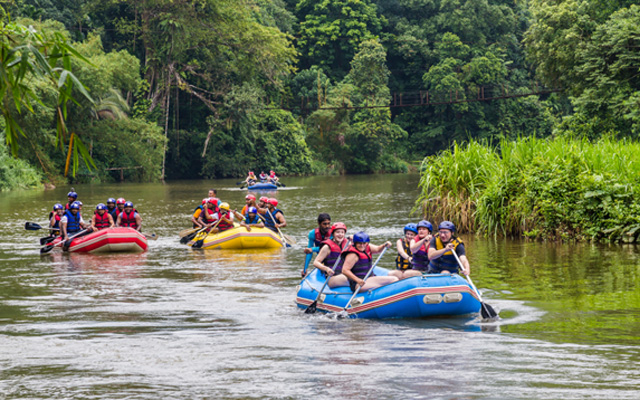Sri Lanka is offering a one-year moratorium on loans and interest payments to the tourist industry, which has taken a big hit after the Easter Sunday bomb attacks.
As tourist arrivals fall to a trickle, hotels in the capital and beyond are experiencing a big setback to revenues.

State minister for finance Eran Wickremaratne told reporters on Tuesday that the Central Bank will prepare regulations to allow the moratorium on loans and interest payments.
The industry had earlier requested a two-year moratorium on loan repayments and a 12-month moratorium on interest payments.
President of the Tourist Hotels Association of Sri Lanka Sanath Ukwatte said among key appeal made to the government were a comprehensive report on the results of the security measures taken and future measures; updates to foreign missions for them to consider relaxing travel advisories; a soft loan to maintain cash flow and working capital requirements; waiving off all personal loan interests and reschedule loans obtained by hotel employees for a period of two years; waiving duty on all imported security equipment; and deferring the various taxes on income paid by hotels.
Wickremaratne said Sri Lanka will allow duty free import of security scanners and metal detectors to be used at hotels, schools or other companies. He added: “This is not only for tourism but for all sectors who will need it.”
Meanwhile, the country’s leaders are attempting to restore confidence in the country’s security among the international community, with Sri Lankan president Maithripala Sirisena on Tuesday urging the diplomatic community to lift travel advisories against Sri Lanka.
Speaking at a news conference on Monday, Sri Lanka Tourism Promotions Bureau (SLTPB) chairman Kishu Gomes told reporters that tourism will bounce back in less than 13 months, assuming there are no attacks. “In Sri Lanka, we hope this would be even sooner,” he was quoted as saying.
The Easter Sunday blasts had led to 37 travel advisories being issued against Sri Lanka in various forms, said Gomes. “Although travel agents are keen to send tourists to Sri Lanka, these advisories are holding them back,” he said.
Meanwhile, the tourism industry is gripped by fears of potentially drastic and far-reaching fallout from the recent terror attacks.
Sri Lanka Association of Inbound Tour Operators president Harith Perera said that if the situation were not properly managed, there could be serious adverse effects on the industry and the country as a whole.
He said the industry has to convince their own partners and tour operators abroad to restart their sales as soon as possible. “At the moment, it’s an indefinite stop in sales in Sri Lanka.”
Ukwatte told Monday’s news conference that with the current travel bans, evacuations of tourists and negative publicity in the international media, it will take a long while for the hotel sector to recover.
“Given the magnitude of the situation, the hotel industry is on the verge of a total collapse, which may result in many people losing their employment and livelihoods,” he was quoted as saying.
Around 1,700 tourists are visiting the country per day compared to 4,600 daily arrivals prior to the Easter Sunday attacks, SLTPB’s Kishu said. He projects that overall arrivals would be down 30 per cent this year.




















